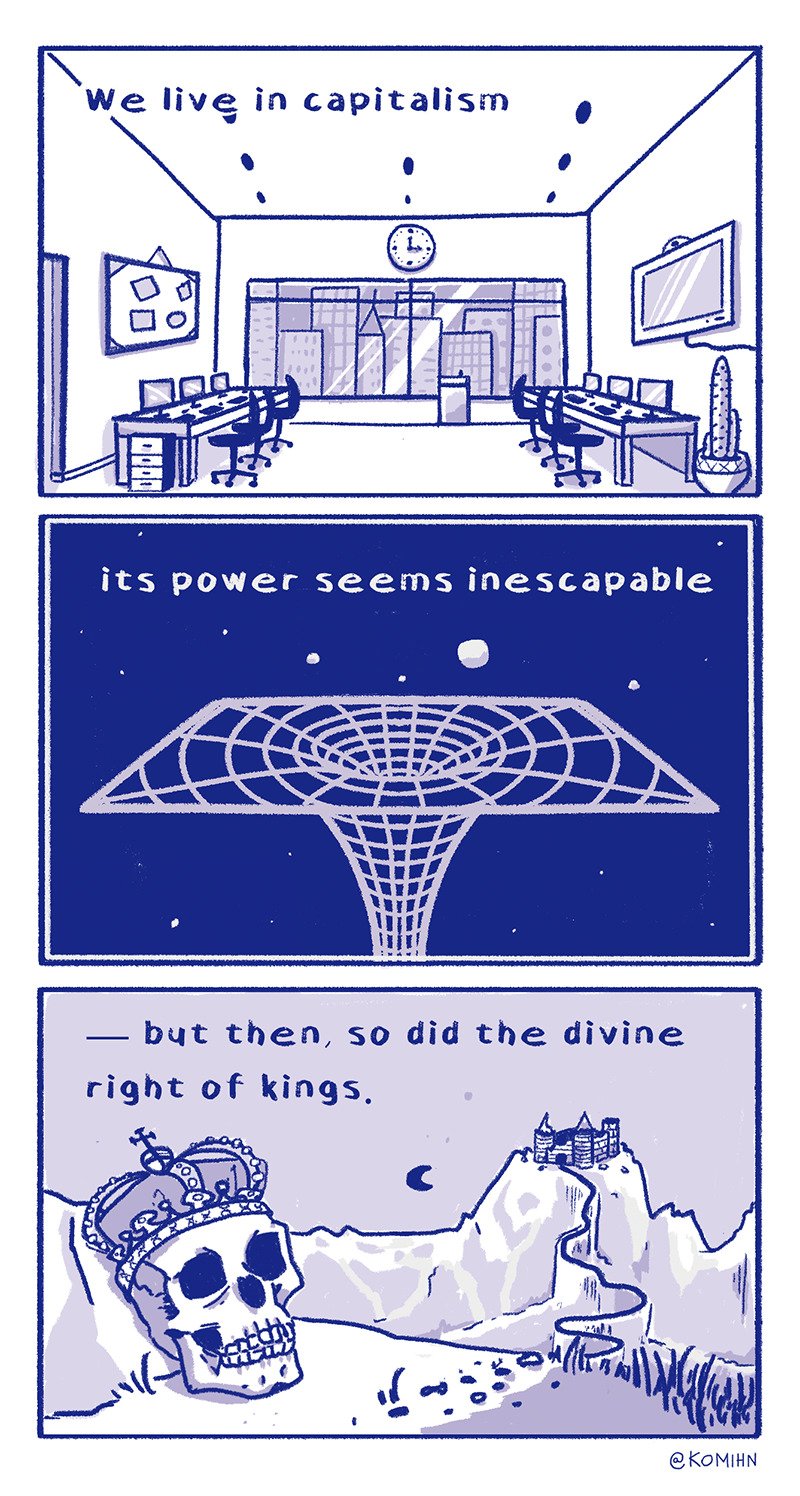this post was submitted on 01 Jul 2024
1167 points (95.6% liked)
Comic Strips
12768 readers
3693 users here now
Comic Strips is a community for those who love comic stories.
The rules are simple:
- The post can be a single image, an image gallery, or a link to a specific comic hosted on another site (the author's website, for instance).
- The comic must be a complete story.
- If it is an external link, it must be to a specific story, not to the root of the site.
- You may post comics from others or your own.
- If you are posting a comic of your own, a maximum of one per week is allowed (I know, your comics are great, but this rule helps avoid spam).
- The comic can be in any language, but if it's not in English, OP must include an English translation in the post's 'body' field (note: you don't need to select a specific language when posting a comic).
- Politeness.
- Adult content is not allowed. This community aims to be fun for people of all ages.
Web of links
- [email protected]: "I use Arch btw"
- [email protected]: memes (you don't say!)
founded 1 year ago
MODERATORS
you are viewing a single comment's thread
view the rest of the comments
view the rest of the comments

The ideas that people have are shaped by their Material Conditions, and people generally act in their best interests. People will buy what is available in the market, and Capitalists work to accumulate more and more money in an M-C-M' circuit.
These are 2 questions.
People generally don't run Socialist services as frequently because in the framework of Capitalism, it is excessively difficult to gain the Capital necessary to start one, and furthermore the people with access to Capital continue to act in their own interests and accumulate more profit off of ownership.
People do not care where their commodities come from, largely, as they work for their income and thus their access is limited by the money they have.
This is known as Mutual Aid, which is a big cornerstone of Anarchism. The issue is that Anarchism generally relies on individuals making the right decisions due to their horizontal structures and has issues with scaling horizontally. These structures tend to have great success locally, such as Food Not Bombs feeding people, but without strong organization scaling becomes difficult and action becomes unfocused.
Why don't you think Capitalism could be abolished via revolution? It's been done before.
Secondly, it is not simply capable of being replaced entirely via parallel systems because that depends on individuals outcompeting the immense resources of the Bourgeoisie. It's certainly possible at a local level, but at a state level takes enourmous power and unity.